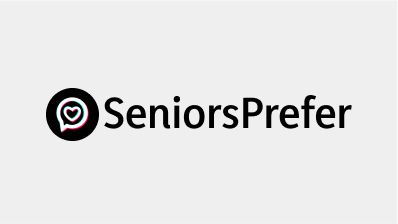Master the Art of Negotiating a Top-Dollar Nurse Salary in Your Upcoming Job Interview
In the realm of healthcare, the role of nurses as fundamental supporters of clinical functions and patient management cannot be overstated. However, despite their pivotal contributions, these professionals frequently encounter obstacles when trying to negotiate a pay reflective of their abilities, unwavering commitment, and the significant impact they have on the healthcare ecosystem. This detailed manual is crafted to provide nurses with the tactics required to argue for a more substantial wage during employment discussions, making certain that their compensation is aligned with their level of expertise and the wealth of experience they bring.

Calculating Your Professional Value
The foundation of any successful wage negotiation is a deep understanding of one's professional worth. It is essential for nurses to conduct comprehensive research on prevailing industry remuneration norms, taking into account aspects such as the regional cost of living, years of professional practice, academic achievements, and area-specific expertise. Utilizing online resources dedicated to salary comparison and engaging in discussions on nursing-specific online platforms can yield essential information. This not only helps in setting a factual expectation for potential earnings but also fortifies their stance in salary discussions.
Showcasing Enhanced Skills and Training
In the healthcare arena, possessing advanced skills and earning additional certifications often equate to a higher rate of pay. Nurses must draw attention to any extra training, accreditations, or courses in continuing education they have pursued. Aligning these attainments with the job specifications or preferences of the prospective hiring body can solidify an argument for inclusion in higher pay categories, underscoring how their superior capabilities contribute to the elevation of patient treatment standards and the streamlining of operational workflows.
Leveraging Past Successes
For nurses to convincingly communicate their value to prospective employers, it's imperative to cite specific instances of success from their past professional engagements. This can include situations where their involvement led to an enhanced patient experience, improved procedures within their department, or participation in initiatives resulting in positive financial or operational impacts for the institution. Presenting tangible examples and hard facts cements the narrative of a candidate's potential for meaningful contribution and bolsters their plea for improved pay.
Anticipating and Responding to Employers' Counterarguments
A critical part of a nurse's preparation for salary discourse is the anticipation of possible counterarguments or alternate proposals from potential employers. It is advantageous to understand typical employer reservations, such as limited budgets or fixed pay scales. With this foresight, nurses can be equipped to negotiate alternative forms of remuneration, such as bonus incentives, allowances for educational advancement, or options for flexible scheduling, thus achieving a well-rounded and satisfactory compensation package.
Practicing the Art of Negotiation
Essential to the negotiation process is being able to communicate with confidence and clarity. It is recommended that nurses rehearse their negotiation approach through role-playing exercises, preferably with the guidance of mentors or peers experienced in successful compensation discussions. Such rehearsals serve to enhance the candidates’ negotiation skills, ensuring fluency in conversation, the ability to preemptively counter inquiries, and proficiently steer through the bargaining process, avoiding the trap of prematurely settling for what is first offered or diminishing their professional worth.
Acknowledging the Employer’s Perspective
Nurses must mirror their assertiveness with an understanding of the employer's limitations and constraints. Recognizing the financial boundaries, strategic ambitions, and general salary guidelines of a healthcare institution not only displays a nurse's professional maturity but also enables a more tailored negotiation approach. This understanding positions their request for a raise in alignment with what is feasible and strategically appropriate for the employer.
Adopting a Cooperative Stance
Effective negotiation is characterized by open-ended dialogue, and a cooperative approach typically yields better outcomes than issuing ultimatums. Nurses should propose their salary expectations within the context of an overall career progression conversation that includes performance objectives and prospective contributions to the facility's success. This tactic encourages problem-solving negotiation, cultivating common ground and advantages for both the nurse and the healthcare institution.
In synthesis, the act of negotiating a superior salary is a subtle blend of meticulous pre-negotiation work, introspective recognition of one’s own value, and adept conversational tactics. With a clear understanding of what they bring to the table, and through engaging in negotiations with preparedness and empathy, nurses are well-positioned to secure compensation that truly reflects their professional contributions. As the critical role of nursing personnel becomes ever more apparent, nurses who assertively communicate their value are paving the way for enhanced standards of remuneration and esteem within their professional domain.
-
1

Ultimate Feast for the Eyes: Top Cooking Shows Every Foodie Must Watch!
-
2

Maximize the Lifespan of Your New Dental Implants with Expert Care Tips
-
3

Ascending with Ease: The Revolutionary Journey of Stair Lift Technology
-
4

Maximizing Your Walk-In Tub's Lifespan: The Ultimate Guide to Enhanced Performance and Durability
-
5

Unlock Bigger Savings: Master the Art of Using Your Gas Rebate Card!










